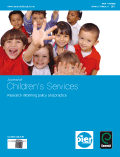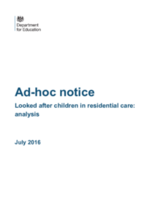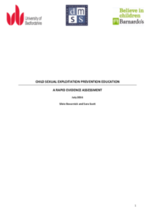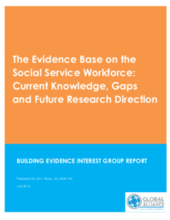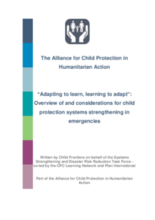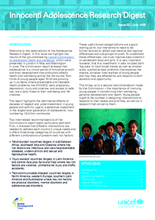Displaying 941 - 950 of 1343
This article presents a systematic review of the existing knowledge of the situation of recently arrived refugee children in the host country.
The purpose of this paper is to map the current organisation and implementation of children’s services in three regions of Spain, to identify strengths and gaps and to suggest proposals for improvement in line with European recommendations.
This analysis was produced as part of an independent review into children's residential care in England and provides data on children living in all types of residential care facilities in the country as of 31 March 2015.
This briefing is based on a rapid assessment of the available evidence relevant to CSE prevention education. It brings together key messages from research and evaluation about what works to prevent sexual exploitation and promote healthy relationships.
This infographic produced by Better Volunteering Better Care explains in an accessible way why we should say NO to international volunteering in orphanages (residential care centres).
The purpose of this report is to review the current conditions of the global social workforce. This study is meant to identify critical gaps in order prioritize current workforce strengthening research.
The aims of this document are to: 1. Provide an overview of child protection systems strengthening in emergencies practice to date, and based on this, 2. Propose certain key considerations with regards to systems for child protection practitioners.
This issue of Innocenti's Adolescence Research Digest includes recent news, events, and other updates as well as links to some of the latest research on adolescents and violence, health, education, street-connected youth and more.
The present study focused on whether parenting and family factors explain variance in cognitive and linguistic catch-up in children adopted internationally.
This chapter analyses how social identity influences children’s recruitment into armed conflict and their reintegration.

